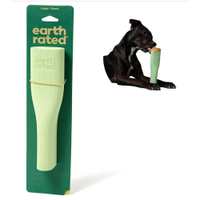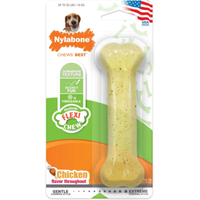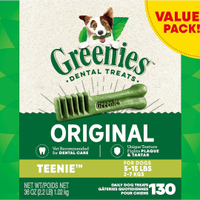A vet’s guide to the safest dog chews for aggressive chewers
Looking for safe dog chews for aggressive chewers? Our vets share their top recommendations
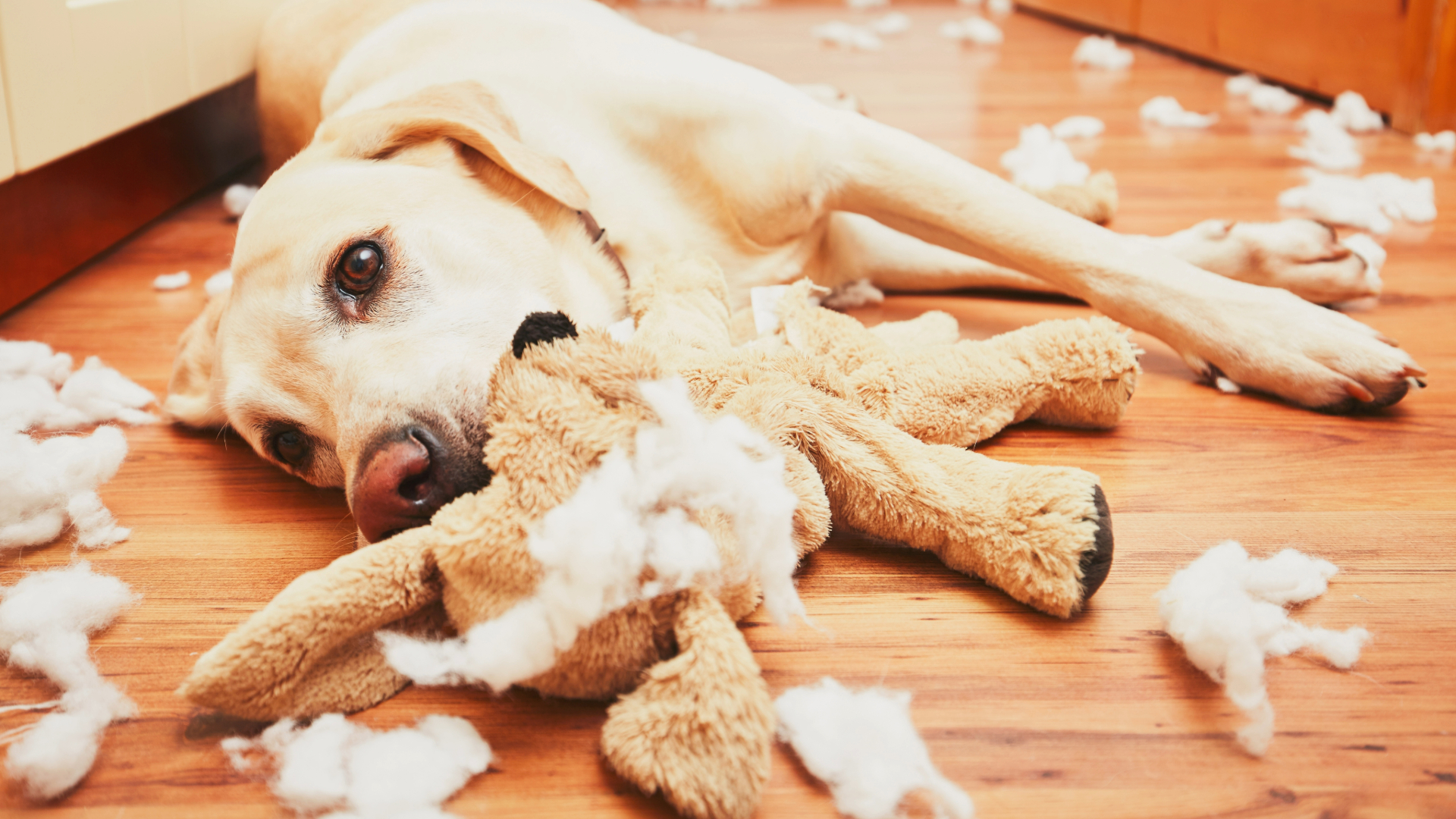
If you’re a pup parent, you’ll know that finding safe dog chews for aggressive chewers isn’t an easy task. With so much controversy around products like rawhide and bones, it can be tricky to know what’s right, what’s wrong, and what’s best for your dog.
Even though large dogs tend to have the strongest jaws, aggressive chewers come in all shapes, breeds, and sizes – and any dog is capable of doing damage to their belongings. That’s why having the best durable dog toys or longest-lasting dog chews is a smart move to keep them occupied, reduce the risk of injury, and help keep your home in one piece.
To help you pick the perfect chew, we’ve called in vets Dr Racine and Dr MacMillan to share their advice. Below, you’ll find their expert opinion on edible vs. non-edible chews, how to choose the right one for your dog, and which options to avoid.
What's the safest dog chews for aggressive chewers?
Dog chews come in many forms, but edible and non-edible chews are the two main categories. Non-edible chews are made of a material such as rubber, nylon, or plastic that is not intended to be consumed. Edible chews provide your dog with entertainment and a delicious treat.
For aggressive chewers, non-edible chews are often a safer choice. Some of these chews have compartments where you can store treats for your pet. This is a great way to give your dog a tasty treat without the risks that come with many edible chews.
These toys often provide an added level of difficulty for your pet and require them to work for their food. This is a great way to make the softer dog treats last a little longer for aggressive chewers.
Earth Rated Enrichment Dog Toy | Amazon
We voted this as the best durable dog toy for many reasons, from the high-quality design to the eco-friendly material. Whether you fill it up with your pup’s favorite treats or use it as a standalone toy, they’re guaranteed tl have lots of fun with it. Our tester Derek said it was excellent at keeping his dog entertained.
What are the risks of edible dog chews?
For aggressive chewers, picking a safe edible chew can be difficult. Aggressive chewers often don’t know their limits and can be destructive. Soft chews, such as the best dental chews for dogs, are gobbled up quickly and provide very little entertainment for your pet.
However, harder chews are not always the answer. Many hard edible chews pose an increased risk of injury and can be difficult for your pet to digest. Bones can splinter and harm your pet’s mouth and digestive tract.
While this is more commonly seen with cooked bones, it is still a risk when feeding raw bones to an aggressive chewer. Likewise, aggressive chewers are more likely to consume these edible treats quickly.
These chews can be very rich and are meant to be eaten over time. Consuming the chew too quickly can cause diarrhea in dogs and other signs of digestive upset.
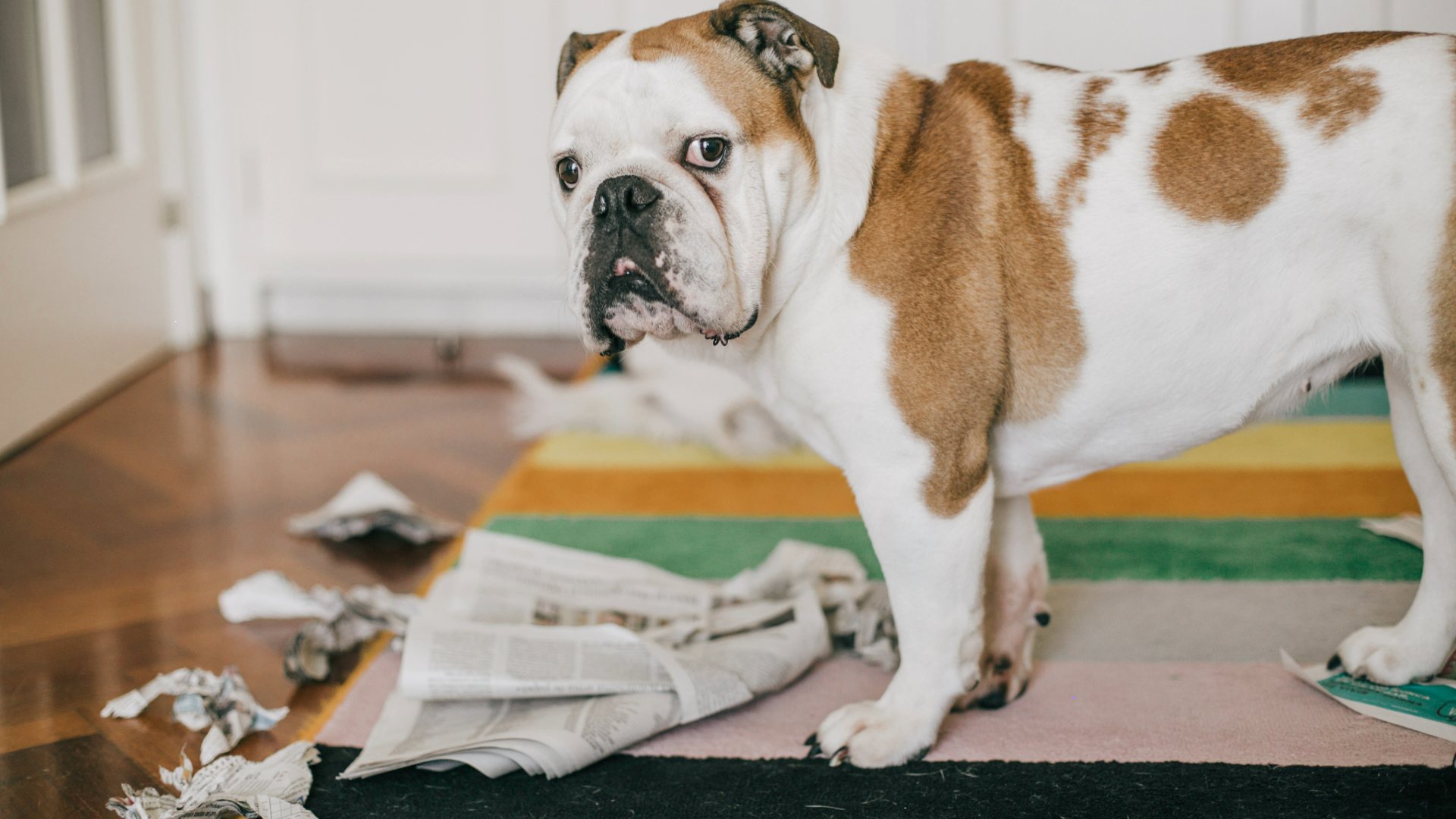
Dog chews on the market
❌ Antlers
Are antlers safe for dogs? In recent years, elk antlers and other types of antlers have become increasingly popular in pet-supply stores as a chew toy for dogs. On the plus side, the risk of bacterial contamination or toxicity associated with antlers for dogs is low, compared to bones and some other types of chews.
On the downside, however, antlers are very hard and unyielding. Chewing antlers can easily lead to dental fractures, especially of the carnassial teeth (the large chewing teeth on either side of the upper jaw, below the eye).
Carnassial fractures are painful for your dog and typically require extraction of the affected tooth or advanced dental procedures (such as a root canal). Additionally, swallowed antler fragments can lead to gastrointestinal obstruction. Therefore, many veterinarians recommend against the use of antlers as a chew toy.
❌ Bones
Bones have long been regarded as a “typical” or “traditional” chew toy for dogs. Unfortunately, there are a number of health risks associated with the use of bones as a dog chew.
Giving your dog uncooked bones can lead to food-borne infections, such as salmonella and E.coli. Bones can also be very hard, causing tooth fractures. Finally, swallowed bones and bone fragments can cause gastrointestinal obstruction.
Some individuals cook their dog’s bones to reduce the risk of food-borne illness, but cooked bones are more likely to splinter when chewed. These splinters can cause significant damage to the oral cavity and the intestinal tract, making cooked bones an especially risky option.
✅ Nylabones
Are Nylabones safe for dogs? Nylabones are a popular chew toy for dogs. However, like antlers and bones, Nylabones often have a very hard consistency, making them a source of dental fractures among dogs.
When purchasing a Nylabone for your dog, look for a soft, flexible Nylabone chew. These chews have some “give” when they are chewed, decreasing the risk of tooth fractures. Even soft Nylabones are not entirely free of risks, though.
If your dog chews through a Nylabone and swallows a piece, this could cause an intestinal obstruction, requiring emergency surgical treatment. Soft chews are the best Nylabone option, but they should only be used under close supervision.
Nylabone FlexiChew Chicken Flavored Dog Chew Toy | Amazon
Dr. Racine recommends this chicken-flavored Nylabone which is soft, flexible, and great for your dog’s chewing habits. It’s super affordable, costing under $10, and comes in a variety of sizes.
❌ Yak chews
Himalayan yak chews are made by boiling yak and cow milk, then drying it over a period of several weeks to create a firm chew.
While this might seem to create a natural chew that would be beneficial for dogs, it’s important to understand that yak cheese is very hard once it is dried.
Therefore, yak chews can pose the same risk of dental fractures as antlers and hard Nylabones. On the plus side, yak chews are intended to be digestible. If your dog does break off a fragment of a yak chew and swallow it, a gastrointestinal obstruction is unlikely.
❌ Tendons
Beef tendon chews may be a bit safer for your dog’s teeth than hard chews, assuming that the tendons are processed in a way that still allows them to have a little bit of give. Evaluate tendon chews on a product-by-product basis.
You’re looking for something with a jerky-like consistency; if the tendon chew is as hard as a bone, it could pose a risk to your dog’s teeth. Like any other chew, tendon chews should only be offered under supervision. When the chew becomes small enough to potentially swallow, take the chew away to prevent ingestion and a possible intestinal obstruction.
✅ Dental chews
Dental chews are probably your dog’s best option, but only if you select the right chew. While there are a wide variety of products marketed as “dental chews,” only a small number of dental chews actually have proven oral health benefits – check out our guide to the best dental chews.
When shopping for a dental chew, look for a seal indicating that the chew is “VOHC accepted”. The Veterinary Oral Health Council (VOHC) seal indicates that the product has undergone testing to verify its claims of supporting dental health.
However, it’s important to note that the VOHC seal only reflects dental benefits and safety. Even products with the VOHC seal could cause an intestinal obstruction if ingested, so it’s important to monitor your dog closely and take chews away when they become small enough to swallow.
Greenies Dental Treats | Amazon
These tasty dental treats are VOHC-accepted and are great for pups who love to chew. They help to fight against plaque and tartar while freshening up your dog’s breath.
❌Rawhide
Dr. MacMillan says: "Although rawhide is great for keeping keen chewers occupied, most vets no longer recommend it. Rawhide is the inner layer of either cow or horse hides, a byproduct of the leather industry.
"It is treated, dried, and often formed into a knotted bone or other fun-looking shapes for dogs to chew. However, rawhide can be extremely dangerous if swallowed in large pieces.
"These chunks can cause a blockage in your dog’s digestive tract, causing vomiting and diarrhea, as well as damage to their guts. Plenty of dogs have accidentally swallowed the ‘knots’ off of the end of rawhide bones causing serious problems.
"Choking can also occur, with chunks of rawhide getting stuck in the esophagus (food-pipe). Dogs are also at risk of tooth fractures when chewing rawhide. Pressed, knotted, or glued rawhides can be very hard and don’t have much ‘give’ when chewed.
"A broken tooth can be very painful and lead to tooth root abscesses. Plus, there have been documented cases of contaminated rawhide. These are animal by-products so can contain potentially harmful bacteria like Salmonella and E.coli, particularly if they are not from a reputable manufacturer."
How to pick the safest dog chews for aggressive chewers
1. Consider how hard it is
When looking for a safe dog chew, it is critical to consider how hard it is. Chews that are too hard can cause fractured teeth and other injuries to the mouth. It is best to pick chews that have some give in them. One way to test how hard a chew is is to tap it against your knee. If the chew is hard enough to hurt your knee, it is too hard for your pet.
Another test you can do to test the material of dog chews is the fingernail test. When you press your fingernail into the chew, you should feel some give and be able to cause an indentation. Much like the knee cap test, if you cannot do this, the chew is too hard for your dog and may cause injury.
For a non-edible chew, consider toys made of durable rubber. These chews are sturdy and hold up to the wear and tear from aggressive chewers. Use the fingernail test to make sure the rubber is not too hard. Avoid chews that are made of hard plastic or have no give to them.
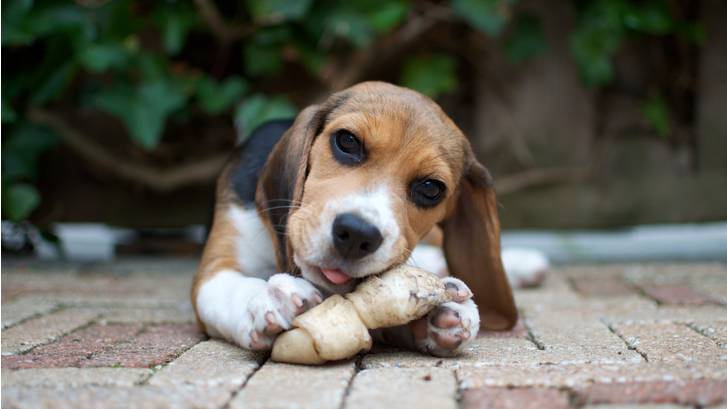
2. Pick an appropriately sized chew
When picking a chew for any dog, size is essential. Dog chews that are too small for your dog do not last long enough and can become a choking hazard. This can be of particular concern with aggressive chewers. Aggressive chewers tend to devour chews quickly and may accidentally inhale a smaller chew in their excitement.
Most chews have a size and weight recommendation on the label. Never pick a chew labeled for dogs smaller than your own. When in doubt, go for the larger chew. Selecting a chew designed for a slightly larger dog may be more durable and last longer with an aggressive chewer. If you are using an edible chew, be cautious in how much you allow your dog to eat in one sitting.
If you’ve got a teething puppy, it would be worth looking at the best puppy teething toys as these are specially designed for smaller mouths and younger teeth – even if they are still aggressive chewers.
3. Supervise your pet
All dog chews have the potential to become dangerous for your pet, especially when you have an aggressive chewer. You must understand the risks when introducing your dog to a new chew. As mentioned, these risks include injuries to the mouth, choking hazards, and potential ingestion. Examine the chew closely and pay attention to any warning on the packaging.
If your dog is normally rough on chews, ensure they only have access to the chew under supervision. Keep a close eye on your dog and remove the chew if the chew becomes too damaged. While the tips in this article can help you pick a safer chew, no chew is without risk.
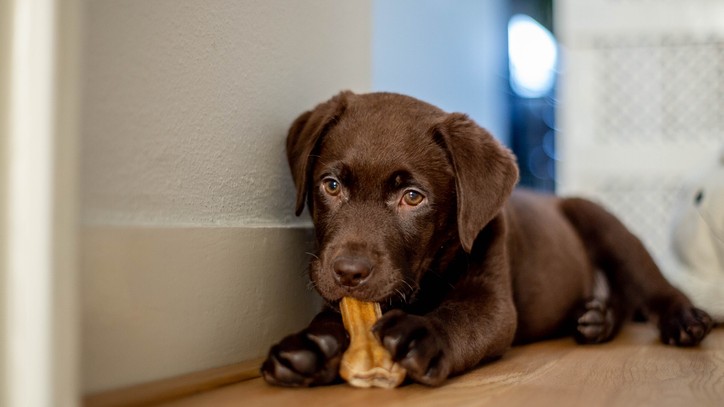
Be careful with all dog chews
Finding a safe dog chew for an aggressive chewer can be a difficult task. These dogs can be quite destructive when it comes to their chews and go through them very quickly. Not only can this behavior be frustrating, but it can also put your pet at an increased risk of injury.
If you have concerns about whether a chew is suitable for your dog, consider discussing it with your veterinarian. Veterinarians often deal with the injuries associated with dog chews and can help you determine what is appropriate for your dog. Hopefully, these tips will give you something to consider the next time you look for a new chew for your pet.
Enjoyed this piece and looking for more great canine content? Check out our guide to the best dog best for chewers, how to stop your dog chewing their bed and why is my dog play biting me?

Dr. Elizabeth Racine is a small animal general practice vet with a bank of knowledge on all things pet health and wellness. She is especially interested in veterinary behavior, nutrition, and internal medicine. Dr. Racine also has experience writing content for the American Kennel Club, Merck Animal Health, Bayer PetBasics, Elanco, and CareCredit.
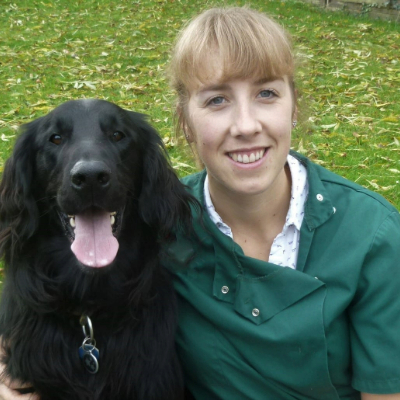
Rebecca is a veterinary surgeon who graduated in 2009 from the Royal Veterinary College in London. She has a wealth of experience in first opinion small animal practice, having done a mixture of day-to-day routine work, on-call emergency duties and managerial roles over the years. Rebecca enjoys medicine in particular and she is proud to have recently achieved a BSAVA postgraduate certificate in small animal medicine (with commendation).
Edited by Georgia Guerin and Alexis De Leaver.
Recent updates
This page was last updated in April 2025 by Megan Milstead.
PetsRadar Newsletter
Get the best advice, tips and top tech for your beloved Pets
Dr. Elizabeth Racine is a small animal general practice vet covering all things pet health and wellness. Her special interests include veterinary behavior, nutrition, and internal medicine.
As a freelance writer, Dr. Racine has written content for major companies in the industry such as the American Kennel Club, Merck Animal Health, Bayer PetBasics, Elanco, and CareCredit. In her free time, Dr. Racine enjoys playing trampoline dodgeball, hiking with her beagle Dasher, and spending time with her three mischievous cats.
- Dr Rebecca MacMillanVet
- Megan MilsteadStaff Writer
